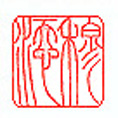— go back one page
— go back to list of extracts
— skip to next extract

I poured a little of the contents of the ladle over my free hand. I sniffed and then wiped it clean. I anointed my hand with some of the white and red pigment with water. And poured some more from the ladle over it. The burning liquid ran off as though repelled. By now my companions were watching intently; I could hear no voice, no sound even of breathing, only the puttering flames on the sea around, which cast a lurid light through the oar-holes.
I put down the ladle, and said: ‘What is on the sea seems to be some kind of bitumen for caulking. But it is much lighter in texture and more fluid than usual. I guess it has been diluted with flammable spirits. And it burns for a long time without air; could contain lime. I’ve heard of something like that being tried out in naval battles.’
I turned to Philodemus, pointing to the sea. ‘If you dive into that as you are, even if you stay under water as long as you can, this burning oil will stick to your skin and in your hair, and may continue to burn when you surface again. You would be lucky to survive.
‘Our best hope is that someone on shore will see the fire and come to our help. But they sleep very early round here, and we can’t rely on it. We don’t know how long the flames will continue. Assume the worst, that it will be long enough to get the boat’s superstructure well alight. Once it is fully alight, we are not likely to survive. We shall burn or drown.
‘Here’s what we do. We cut the mooring rope, if it’s not already burned through. Myrtidon and I take two planks and try to row with them through these aftmost oar holes. If we can get up just a little way, this should slow down the process of the boat catching fire. Every few strokes, we lean outboard with the plank, walk along and swish it along the side. The ship may carry the burning oil along with her. But with any luck there will be less of it forward.
(2/3)